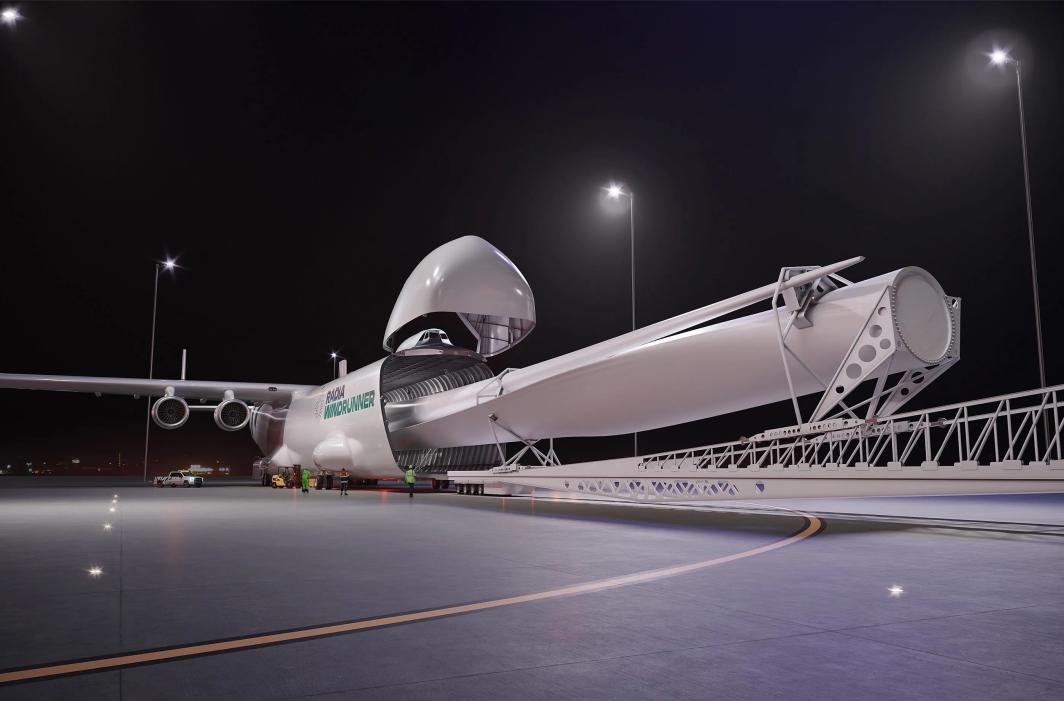
Share this
Engineers have unveiled plans for the world’s largest airplane, nicknamed the WindRunner, which would use renewable energy transporting gigantic wind turbine blades from point A to B.
Designed the Colorado-based energy company Radia, the behemoth cargo carrier measures a whopping 356 feet long and 79 feet tall with a wingspan of 261 feet.

The plane is as long as a regulation NFL football field and 127 feet longer than the Boeing 747, the world’s largest passenger plane.
With a potential carrying capacity of 80 tons, it will also be able to hold 12 times as much as the latter aircraft as well.

In order to accommodate the jumbo jet’s landing, a 6,000 foot runway will also need to be constructed.
The WindRunner’s purpose is to fly the blades of onshore wind turbines which measure between 150-300 plus feet long and can weigh 35 tons to various wind farms.
Due to their large size and unwieldiness, the big fan blades currently have to be transported offshore via specialized marine vessels, which limit their use on land.

“Today’s largest wind turbines and the even larger ones of the future cannot be transported to prime onshore wind farms via ground infrastructure,” Radia writes on its website.
“That was a very clear moment when the industry speaks to you,” Mark Lundstrom, the MIT-trained rocket scientist who founded the firm, told the Wall Street Journal.

He spent the last seven years perfecting the design with an engineering team to ensure the WindRunner didn’t come apart when the rubber hit the runway.

In addition to carrying preexisting windmill whirrers, the WindRunner’s capacity would also pave the way for the development of even larger terrestrial turbines, which would be capable of generating even more power.
In fact, experts estimate that the larger air carvers could increase the consistency of power generation 20% compared to the terrestrial turbines of today. They could also scale back energy costs as much up to 35%.
Lundstrom also believes his plane’s massive cargo capacity could have other applications, transporting massive military machinery.

